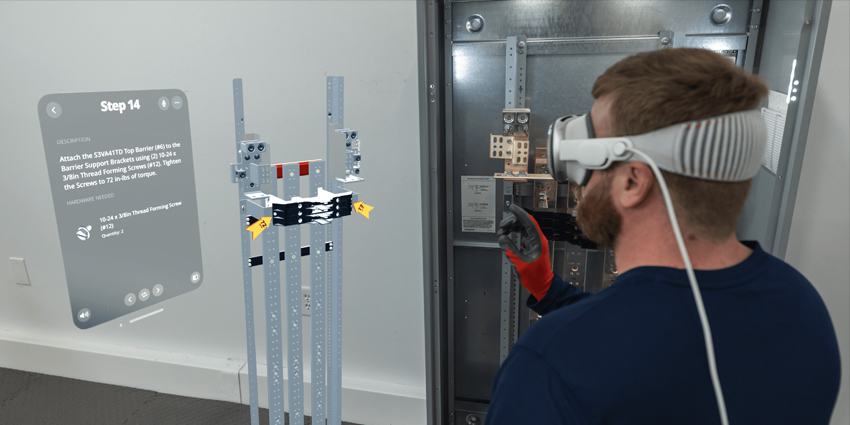The extended reality landscape represents a new frontier for businesses from all backgrounds. It’s an opportunity to immerse consumers in more meaningful service experiences, open new avenues for sales, and even boost productivity among teams.
However, with the rise of new realities also comes the emergence of new security, privacy, and ethical threats. Already, regulatory groups and consumers alike have begun questioning the safety of the XR environment. Users are concerned about the highly sensitive data collected by AR apps and VR headsets, and how this information might be used to influence their lives.
As concepts like the Metaverse emerge to offer users a new way of building their digital identities, any company investing in XR will also need to ensure they have the right security measures in place. Here are the top reasons you should be investing in XR Security and Privacy solutions today.
1. Creating Ethical XR Environments
The rise of new technology often leads to discussions around ethics. In recent years, we’ve seen how the rapid evolution artificial intelligence has prompted new conversations about how far we should realistically go with intelligent devices and algorithms. Now, as the XR market evolves, there communities emerging to discuss the ethical use of new devices.
For instance, many XR devices have the capacity to collect significant amounts of valuable data for businesses. A retail company can use eye tracking technology to determine which parts of a store a customer looks at first when wearing AR glasses. An educational company can use motion and gaze tracking to learn more about the way our brains work.
On the one hand, the ability to capture this information is fantastic for companies looking to better-understand their users. On the other, it presents clear issues from an ethical perspective. Around 95% of decision-making currently takes place in the subconscious mind, and these processes can be monitored through sensor and tracking technology.
The right tools can give companies an opportunity to dive deeper into their customer’s brains, which isn’t something every customer will feel comfortable with.
2. Managing Identity and Privacy in XR
Advances in machine learning and facial recognition have come a long way in recent years. Companies can now create hyper-realistic avatars of users in a VR, MR, or AR environment. This is something we’re likely to see more of as people transition their digital identities into the metaverse. However, intelligent devices can also use the same technology to create fake versions of real people.
This could allow for criminals to effectively “steal” the identity of other people in the virtual space, creating new challenges when it comes to managing and preventing fraud. Not only is the risk of fraudulent activity significant for consumers, but it’s a serious problem for businesses too.
If the wrong people collect enough information about another person’s identity, they could replicate not only their digital avatar, but their biometric scans, allowing them access to sensitive data.
Before we go deeper with XR, and begin looking at things like “Brain Computer Interfaces” to control tools with brain waves, we need to determine how companies will manage and use the data collected, and where customer permission is necessary.
We’ll also need to determine ways of separating potentially “fake” or “deepfake” content from authentic content in the XR world.
3. Protecting Against Cyber Attacks
XR solutions are commonly connected to the digital world through the use of IoT technology, artificial intelligence, and beacon tools. This allows people to connect with the GPS on their phone and get AR-generated maps on their screen. It also means consumers can purchase products and NFTs within the VR environment using their avatar and cryptocurrency wallets.
The connection to the internet for any device opens the door to risks when it comes to cyber criminals and attacks. For many businesses, implementing the right XR strategies will mean walking the line between creating a convenient and seamless experience for users, while protecting data.
The right security systems will need to be in place to ensure that intellectual property in businesses using XR collaborative tools remains safe when traveling through the cloud. At the same time, consumers will need to feel secure their eye movements and other personal forms of data aren’t being tracked by malicious parties.
Eavesdropping criminals, social phishing strategies, and malware in the XR environment could all lead to significant concerns when it comes to data breaches and user protection. This means anyone in the XR environment will need to take extra steps to ensure their networks and devices are secure.
4. Create a Safer Metaverse
For most companies, the metaverse represents an unprecedented step forward in the way they connect with their consumers, and the way people interact with technology. The XR landscape is a powerful tool for the XR economy, allowing people to step into virtual environments and connect with communities like never before. However, there are security issues to consider.
First, companies will need to think about how they can protect NFTs, intellectual property and other assets within a virtual environment. Secondly, they’ll need to think about how they can give their users the freedom to traverse a digital landscape, without placing them at risk.
The Metaverse will give people the freedom to alter their digital avatars to be anything they choose, create and share all kinds of content, and generally connect with people from a range of communities. This opens the door to risks around harassment, cyber bullying, fraud, and theft.
Investing in security and privacy solutions now is how XR companies can make sure they’re prepared for the impending rise of this new landscape. Every company looking into an XR future will need to think about how users will be defended in the metaverse.
5. Preserve Compliance
Finally, while the XR environment might open new doors for productivity, communication, and learning, it doesn’t stop companies from having to think about the everyday privacy and security expectations in their industry. As we move towards a new age of XR immersion, where customer service and collaboration happen consistently in XR, there will still be regulations to address.
Companies investing in XR will need to ensure the data they collect in an XR world still follows the regulations implemented by things like HIPAA, GDPR, and PCI. There will still need to be security systems in place to encrypt transactions and protect personal information. Companies will even need to think about how they can keep team members secure, and minimize the risk of unapproved access.
The shift into a new era of technology could mean incredible things for businesses traversing the XR space. However, it’s only possible to take full advantage of this new landscape by thinking about security and privacy first. The right security standards will be a must-have for any XR strategy.







